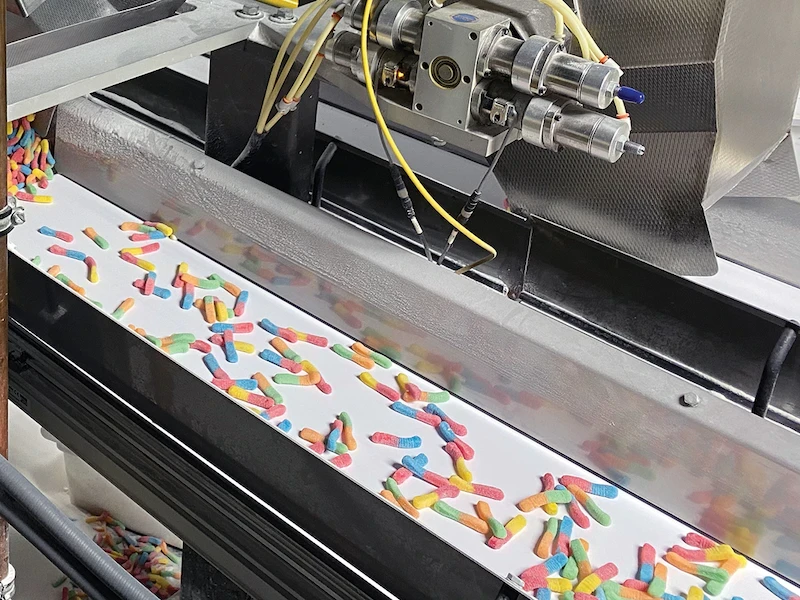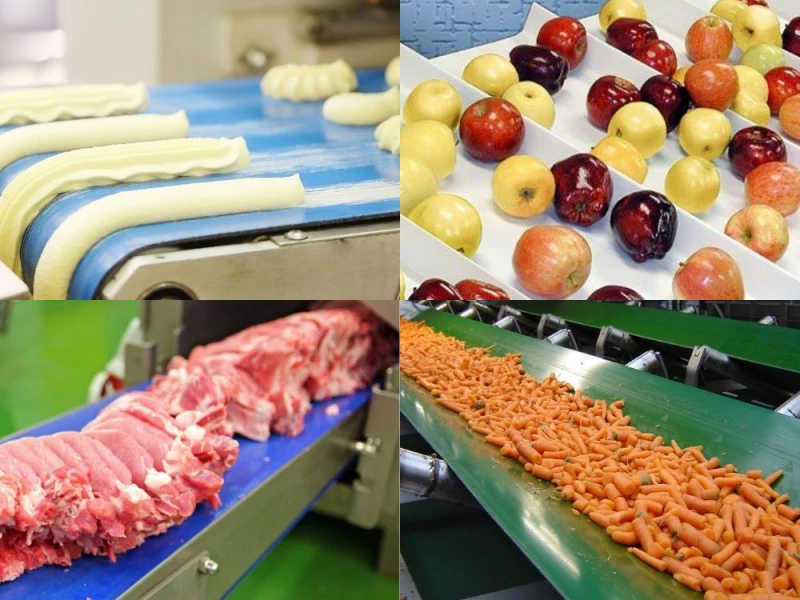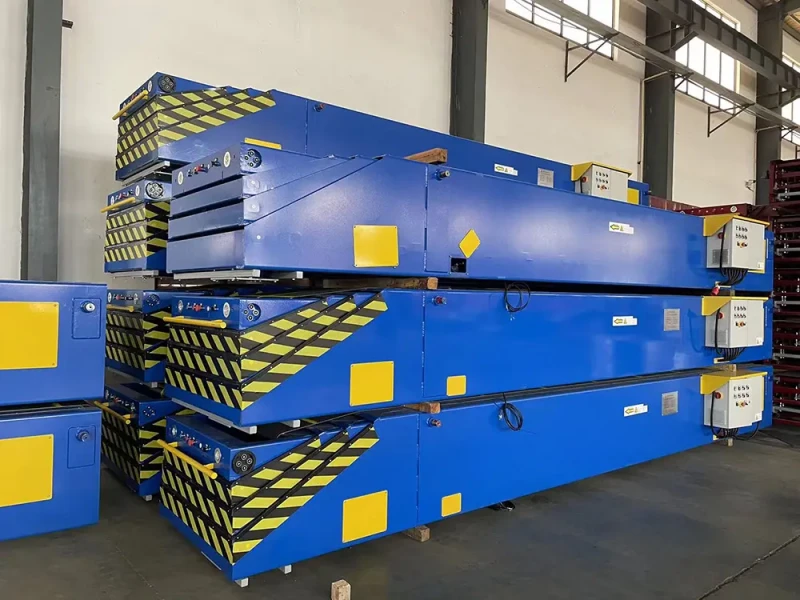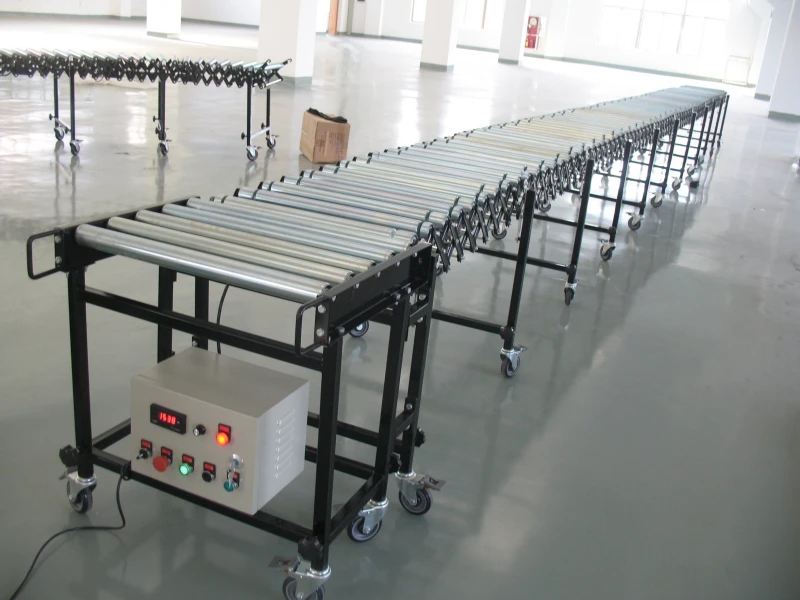
The Critical Role of Conveyors in the Food Industry
Food safety is a major public concern, especially in today's competitive and complex food industry supply chain. Ensuring the safety and quality of food has become a priority across the sector. Conveyors, as efficient and reliable material-handling tools, play an important role in this effort. Inbelts can offer belt conveyor and roller conveyor for food processing factory. This article explores the applications of food conveyors in enhancing food safety, highlighting their significance in maintaining safe and hygienic food production, as well as the challenges they face.
The Role of Conveyors in the Food Industry
1. Safe Transport of Food Raw Materials
In food production, conveying various raw materials is an essential step. Traditional manual handling carries a risk of cross-contamination, while food conveyor can offer enclosed transport that reduces the risk of food contamination. Conveyors automate material handling, minimizing the impact of human factors on food safety and reducing exposure to external pollutants.
2. Strict Hygiene Design and Cleaning Standards
Conveyors used in the food industry must meet strict hygiene and cleaning standards. Typically made from stainless steel or FDA-approved food-grade materials, conveyor surfaces are smooth and easy to clean, preventing bacterial growth and residue buildup. The pu conveyor belts are widely used food conveyor belts for supporting food products in processing plants. Many conveyors also come with cleaning systems for regular washing and disinfection, ensuring hygiene and safety throughout the food production process.

These are belt conveyors using FDA grade conveyor belts.
The conveyor belts are:
- PU Belt, -20~+80(100)℃;
- PVC Belt, -20~+80℃;
- Thermoplastic Polyethylene (TPE) Belt, -30~+110℃;
- PTFE (Teflon) Belt, -70~+260℃;
- Canvas Belt (Biscuit), ~200℃;
- Silicon Belt, -30 ~+180℃.
3. Precise Material Sorting and Diverting
In food production, different types of food require careful sorting and diverting during the process. Manual sorting is prone to error, leading to mix-ups and cross-contamination. Using intelligent control systems, conveyors can accurately identify and separate various types of food, supporting product traceability and quality assurance. You can get belt conveyor and portable conveyor listed below from us.
- Fixed belt conveyor
- Mobile telescopic belt conveyor
- Truck loading unloading conveyor
- Flexible conveyors
Among these conveyors, the mobile telescopic conveyors are commonly used as truck loading unloading conveyor in food logistic industry. They can provide high loading unloading efficiency.

These are telescopic belt conveyors for food packaging boxes.
4. Efficient Quality Control and Traceability Systems
Conveyors enhance the efficiency of quality control and traceability in food production. By collecting and monitoring data, conveyors can track material flow and process parameters in real-time, interfacing with quality control systems. If an issue arises, immediate corrective actions can be taken to ensure food safety and quality. Additionally, conveyors can record transport information for each batch, supporting robust food traceability.
5. Boosting Production Efficiency and Reducing Human Error Risks
The automation features of conveyors make food production more efficient and reduce the risk of human error. Industrial-grade conveyors enable continuous, high-speed material transport, improving production efficiency. They can also monitor operational conditions in real time, issuing alerts in case of anomalies to further mitigate risks.

This is a flexible roller conveyors for food factories.
Challenges Facing Conveyors in the Food Industry
While conveyors play a crucial role in food safety by facilitating the safe transport of raw materials, ensuring hygiene through design and cleaning, precise sorting, efficient quality control, and improved productivity, they also face certain challenges.
First, maintenance and sanitation are crucial. Due to the food industry's specific requirements, conveyors must be regularly cleaned and sanitized to ensure hygiene and safety. For enclosed conveyors, attention must be paid to prevent leakage and residue buildup, as these can lead to bacterial growth and food contamination.
Second, conveyors require strict operational protocols and training. Staff must be trained on conveyor operation to understand the principles and precautions involved, minimizing the chances of errors and risks. Additionally, food manufacturers should establish comprehensive food safety management systems to ensure that conveyors operate in alignment with other food safety measures, forming a cohesive quality assurance system.
Finally, government bodies and industry organizations should strengthen conveyor oversight and management, promoting awareness and training on food safety regulations to steer the industry toward higher safety and reliability standards.
As technology advances and food safety requirements intensify, the role of conveyors in food safety will continue to expand and evolve. Through ongoing technological innovation, improved industry standards, and stronger self-regulation, we can build a safer, more reliable food supply chain and deliver high-quality, safe, and dependable food products to consumers. Let us work together to contribute to the mission of food safety!


Leave Me Your Requirement!